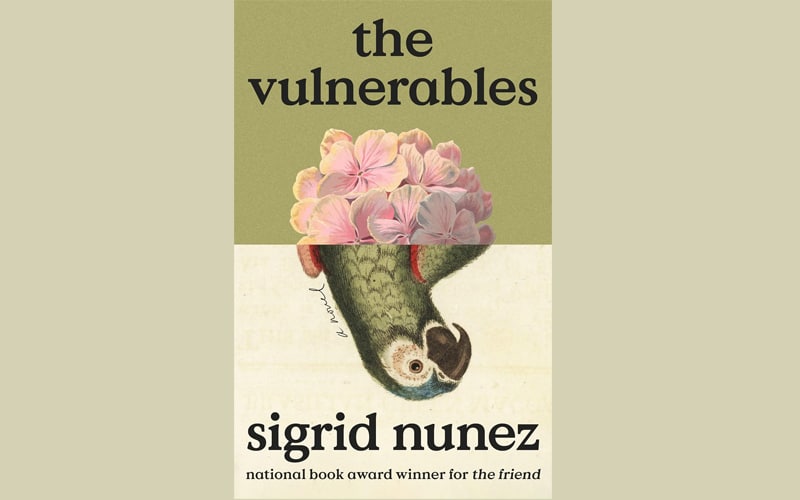Given the proliferation of books about or set during the pandemic, it seems I’m in the minority when it comes to finding the idea of a novel about people enduring lockdown distinctly unappealing. The Vulnerables is, therefore, my first pandemic novel, and while I can’t say I’m in a rush to read another one, that’s more a reflection on me than on the quality of Sigrid Nunez’s latest novel.
What drew me to The Vulnerables was the focus on unlikely relationships. Nunez’s unnamed narrator is a writer approaching old age, whose friends remind her that she’s a ‘vulnerable’ and needs to start acting like one. She is asked to pet-sit when a wealthy friend of a friend worries about the mental well-being of her miniature macaw, Eureka.
The narrator is not the first-choice Eureka-buddy; before her came a troubled college student who walked out on the poor parrot for nebulous reasons. When our narrator moves in with Eureka and begins to discover the remedial power of interacting with a bird whose existence is a permanent form of the captivity in which the residents of New York now find themselves, she does not realise that Eureka’s former companion still has a key.
One day, she wakes up to find Vetch (our narrator chooses to name all her fellow characters – aside from Eureka – after flowering plants) is back, and with him a whole host of resentful feelings: jealousy for his relationship with Eureka, repressed lust for his beautiful physique, and bitterness at his intrusion on her solitude.
Predictably, the trio eventually grows close, despite the narrator initially characterising Vetch as ‘A misanthrope. A mansplainer. Possibly a budding ecoterrorist…’. We see a relationship evolve that paints Vetch as a caring, if difficult, young man with a tenderness that can’t help but move both narrator and reader.
What really elevates The Vulnerables is the way in which the narrator’s blending of reflection, memory and narrative creates a central preoccupation with writing, with memory, and with the place of memory in one’s knowledge of a life, whether in writing or in realities that exist only as recollections.
For this reader, it’s the writing on writing – which the narrator realises might have the effect of ‘annoying the hell out of some people’ – that allows us to expand beyond the narrowness – in every sense – that a pandemic novel necessitates. Bringing in snippets from Rousseau, Marquez, Bishop and Moore, The Vulnerables leads us to consider the fact that writers have always needed and expressed the kind of reflective introspection and caustic observation that characterised the restrictive loose-endedness of lockdown life for many. And that makes me glad I chose this as my first and only pandemic novel.
The Vulnerables by Sigrid Nunez is published by Riverhead Books.







Click here to change your cookie preferences